A hardship license in Louisiana allows individuals with suspended licenses to drive for essential purposes, such as work or school, during their suspension period.
Overview of Hardship Licenses
A hardship license in Louisiana is a restricted driving privilege granted to individuals whose licenses are suspended, allowing them to drive for essential purposes. It is issued to address unusual economic hardship, medical emergencies, or family needs. This license enables driving to work, school, or medical appointments but comes with specific restrictions, such as limited hours or geographic areas. It is not a full reinstatement but a temporary solution to mitigate severe inconveniences during a suspension period.
Importance of a Hardship License
A hardship license is crucial for individuals facing license suspension, enabling them to maintain employment, attend school, and handle medical emergencies. It prevents job loss and ensures family obligations are met. This restricted privilege provides legal driving rights during suspension, avoiding further penalties for unlicensed driving. It serves as a lifeline for those needing transportation for essential activities, helping them manage daily responsibilities while addressing the underlying suspension issues. The license underscores the balance between accountability and necessity.
Eligibility Criteria for a Hardship License
Eligibility requires completing a driver improvement course, paying reinstatement fees, and providing proof of financial responsibility. Specific offenses may necessitate additional requirements like an IID installation.
General Eligibility Requirements
To qualify for a hardship license in Louisiana, applicants must meet specific criteria, including completion of a state-approved driver improvement course, payment of reinstatement fees, and proof of financial responsibility. They must also file an SR-22 insurance form with the OMV. Eligibility varies based on the severity of the offense and may require court approval. Certain cases, such as DWI convictions, mandate the installation of an ignition interlock device. Applicants must demonstrate a genuine need to drive for essential purposes. Requirements are strictly enforced to ensure compliance with state laws.
Specific Eligibility Conditions
Applicants must prove exceptional circumstances, such as economic hardship or family medical emergencies. First-time offenders may qualify after 30 days of suspension. Drivers must show proof of insurance and pay reinstatement fees ranging from $60 to $300. A court order is often required, especially for DWI cases, which also mandate an ignition interlock device. Commercial drivers are ineligible unless they downgrade their license. Restrictions include limited driving hours and specific destinations, ensuring the license is used only for essential purposes. Compliance with all conditions is strictly enforced.
First-Time Offenders Eligibility
First-time offenders in Louisiana may apply for a hardship license after serving 30 days of their suspension. Eligibility requires demonstrating the necessity of driving for essential activities like work, school, or medical appointments. Applicants must submit an SR-22 form and pay the reinstatement fee. Court approval is typically needed, especially for DWI cases, which may also require an ignition interlock device. The license allows restricted driving privileges, ensuring compliance with state regulations and maintaining public safety while addressing the offender’s critical needs.

Hardship License Application Process
The hardship license application process in Louisiana requires petitioning the district court, submitting required documents, and obtaining court approval. An SR-22 form and reinstatement fees are necessary.
Step-by-Step Application Guide
To apply for a hardship license in Louisiana, start by petitioning the district court in your parish. Complete the required application form and submit it with an SR-22 insurance form. Pay the reinstatement fee, which varies based on the suspension reason. Attend a hearing if scheduled, where the court will review your case. If approved, receive the hardship license with specific restrictions. Ensure compliance with all terms to maintain driving privileges during your suspension period.
Required Documentation for Application
Applicants must submit an SR-22 insurance form, proof of financial responsibility, and a completed hardship license application. A court order may be required if petitioning through the district court. Additionally, payment of the reinstatement fee and any outstanding fines is necessary. In some cases, a certificate of completion of a driver improvement course may be requested. Ensure all documents are up-to-date and meet Louisiana OMV standards for processing. Additional documentation may be required based on the specific circumstances of the suspension.
Submission Methods and Processing Times
Applications for a Louisiana hardship license can be submitted online, in person, or by mail. Online applications are typically processed within 24-48 hours, while in-person submissions may be processed same-day. Mailed applications take longer, usually 7-10 business days. Ensure all required documents are attached and fees are paid to avoid delays. Processing times may vary depending on the complexity of the case and the workload of the OMV. Online submissions are generally the fastest option.
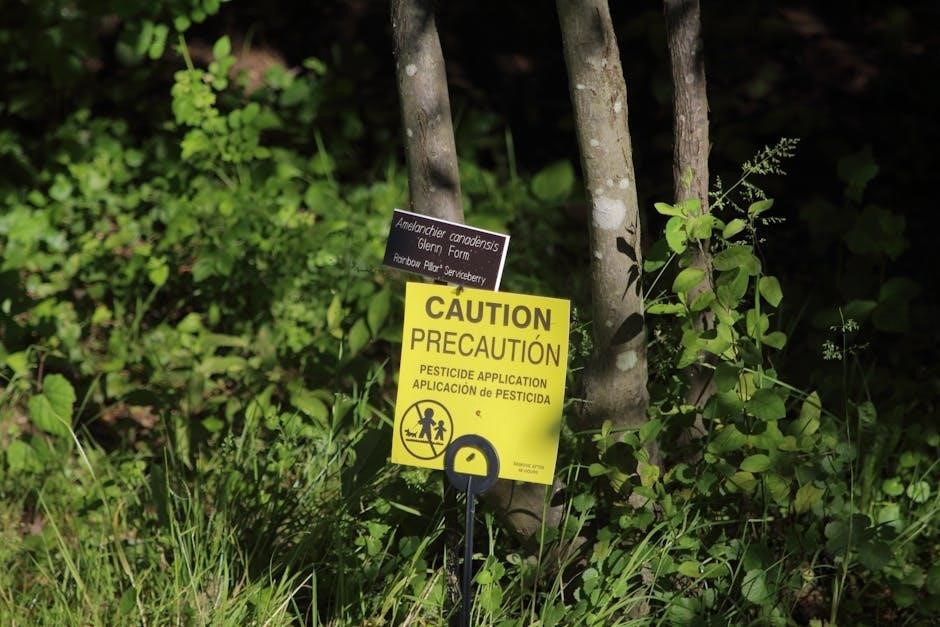
Required Documents for Application
To apply for a Louisiana hardship license, you must submit an SR-22 form, pay the reinstatement fee, and provide a court order if required.
SR-22 Insurance Form
The SR-22 insurance form is a critical document required for hardship license applications in Louisiana. It verifies that you maintain the minimum liability insurance coverage. Filed with the Louisiana Office of Motor Vehicles (OMV), this form is typically mandatory for individuals who have had their licenses suspended due to certain violations, such as a DWI. Your insurance provider issues the SR-22, which guarantees that you will maintain coverage for a specified period. Failure to keep the policy active may result in further suspension of your driving privileges.
Reinstatement Fee Payment
Reinstatement fee payment is a mandatory step in obtaining a hardship license in Louisiana. The fee varies based on the suspension reason, typically ranging from $60 to $300. This payment must be made to the Louisiana Office of Motor Vehicles (OMV) before your application can be processed. The fee is non-negotiable and is separate from other costs like SR-22 insurance. Contact the OMV or visit a reinstatement office to confirm the exact amount required for your specific case.
Court Order and Other Legal Documents
A court order is often required for a hardship license, especially in cases involving DWI convictions. Applicants must submit legal documents, such as a judgment or application for a restricted hardship license, to the Louisiana Office of Motor Vehicles (OMV). These documents verify the court’s approval for limited driving privileges. Ensure all legal papers are complete and submitted alongside other requirements, such as the SR-22 form, to avoid delays in processing your hardship license application.
Costs and Fees Associated
Obtaining a hardship license in Louisiana involves fees, including a reinstatement fee (ranging from $60 to $300) and SR-22 insurance costs. Additional administrative fees may apply.
Reinstatement Fee Details
The reinstatement fee for a hardship license in Louisiana varies depending on the reason for suspension, typically ranging from $60 to $300. This fee must be paid before the application is processed. For DWI-related suspensions, additional costs may apply, such as the installation of an ignition interlock device. It is essential to verify the exact fee amount with the Louisiana Office of Motor Vehicles to ensure all financial obligations are met for the hardship license to be granted.
SR-22 Insurance Costs
Obtaining an SR-22 insurance form is a requirement for hardship license applicants in Louisiana. The cost of SR-22 insurance varies by provider but typically ranges from $300 to $500 annually. This form confirms liability coverage and is mandatory for drivers with suspended licenses. Additionally, a one-time filing fee of $25 to $50 may be charged by the insurance company. These costs are separate from the reinstatement fee and must be maintained throughout the hardship license period to avoid further penalties.
Additional Administrative Fees
Beyond the reinstatement and SR-22 fees, applicants may incur additional administrative costs. These include a $36.25 fee for the hardship license itself and potential charges for processing or filing documents. Furthermore, some parish courts may impose their own fees for court-ordered hardship licenses. These costs accumulate and must be paid alongside other requirements to ensure the application is processed without delays. Budgeting for these fees is essential to avoid unexpected expenses during the application process.
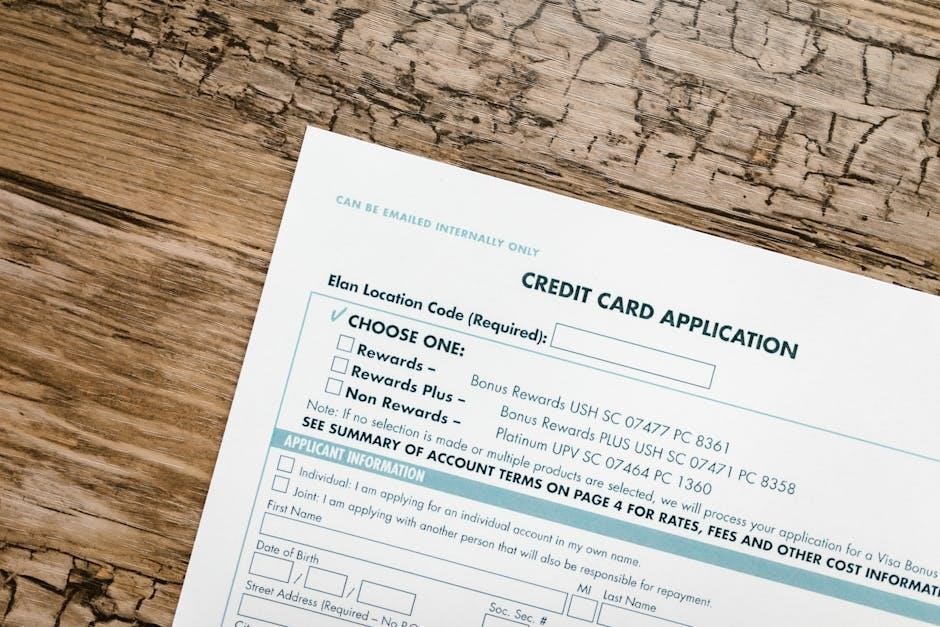
Restrictions and Limitations
Hardship licenses in Louisiana restrict driving to essential purposes like work, school, and medical appointments. They may also impose time and geographic limitations. Violating these restrictions can result in further penalties.
Permissible Driving Purposes
A hardship license in Louisiana allows driving for essential purposes such as commuting to work, attending school, or visiting medical appointments. Other necessary trips, like caring for family members or accessing vital services, may also be permitted. These licenses are designed to ensure individuals can maintain their daily lives while adhering to specific restrictions.
Time Restrictions for Driving
Hardship licenses in Louisiana often come with specific time restrictions, typically allowing driving only during essential hours. This may include commuting to work or school between 6 AM and 7:30 PM. Driving for medical emergencies or other court-approved purposes may be permitted outside these hours. The restrictions are strictly enforced, and violations can result in further penalties. The exact time limits are determined by the court or DMV and must be adhered to carefully to maintain driving privileges under the hardship license program.
Geographic Limitations
Hardship licenses in Louisiana may impose geographic restrictions, limiting driving to specific areas such as between home, work, school, or medical facilities. Travel outside approved regions or for non-essential purposes is typically prohibited. These restrictions are designed to ensure the license is used only for necessary activities. Violating geographic limitations can lead to penalties, including license revocation. The specific boundaries are outlined in the court order or by the OMV and must be strictly followed to maintain compliance with the hardship license terms.
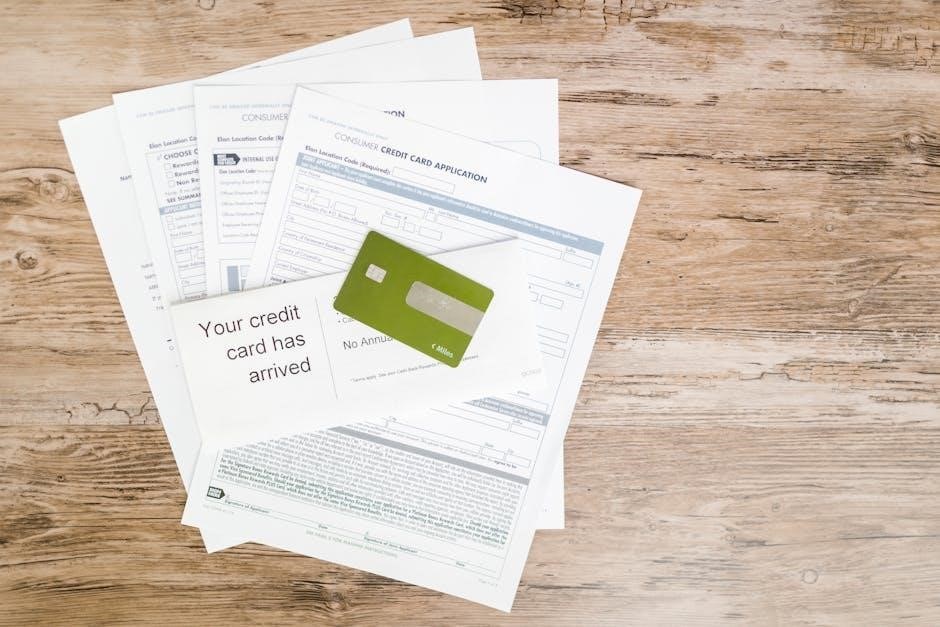
Legal Requirements and Considerations
Obtaining a hardship license requires a court order or compliance with specific statutes. Applicants must meet legal criteria, such as installing an IID for DWI offenses, to ensure public safety.
Court-Ordered Hardship Licenses
A court-ordered hardship license is issued when the Louisiana Office of Motor Vehicles (OMV) denies the application. Applicants must petition their parish district court, submitting a formal request. The court evaluates the necessity of driving privileges, ensuring public safety. If granted, the court provides specific terms, such as permissible driving purposes and time restrictions. Applicants must also submit required documents, including an SR-22 form and reinstatement fees, before the court can issue the hardship license.
Role of the District Court
The district court plays a crucial role in granting hardship licenses in Louisiana. Applicants denied by the OMV can petition the court to review their case. The court evaluates the necessity of driving privileges, ensuring public safety while addressing the applicant’s need to drive for essential purposes. If approved, the court issues an order directing the OMV to grant the hardship license, specifying restrictions such as permissible driving purposes and time limits.
Legal Implications of Violations
Violating the terms of a hardship license in Louisiana can result in severe legal consequences. Penalties may include fines, reinstatement of the suspension, or even criminal charges. Driving outside authorized hours, locations, or purposes can lead to confiscation of the hardship license. Repeat offenses may extend the suspension period or revoke the privilege permanently. Additionally, violations can impact future eligibility for a full driver’s license, emphasizing the importance of strict compliance with all restrictions imposed by the court or OMV.

Special Considerations
Special considerations for hardship licenses in Louisiana include cases involving commercial drivers, out-of-state suspensions, and individuals with multiple offenses, requiring additional documentation and court approval.
Commercial Drivers and Hardship Licenses
Commercial drivers in Louisiana face unique challenges when applying for a hardship license. CDL holders must downgrade to a Class E or D license to qualify. Additionally, commercial drivers cannot use a hardship license for operating commercial vehicles. If suspended in another state, they must resolve the out-of-state suspension first. Furthermore, CDL holders may need to pay additional reinstatement fees and provide proof of financial responsibility through an SR-22 form. These requirements ensure public safety while maintaining limited driving privileges for essential purposes.
Out-of-State Suspensions and Hardship Licenses
Individuals with out-of-state suspensions must resolve the suspension in the issuing state before applying for a Louisiana hardship license. The Louisiana OMV requires clearance from the out-of-state jurisdiction to process the hardship license application. This ensures compliance with both states’ regulations and eligibility criteria. Applicants must submit proof of resolution and meet Louisiana’s specific requirements, including SR-22 insurance and reinstatement fees, to obtain limited driving privileges during their suspension period.
Impact of Multiple Offenses
Multiple offenses significantly affect hardship license eligibility in Louisiana. Repeat violations, such as additional DUIs or traffic infractions, may lead to stricter restrictions or denial of a hardship license. Applicants with multiple offenses face higher reinstatement fees, mandatory ignition interlock devices, and extended suspension periods. The Louisiana OMV evaluates each case based on severity and history, potentially imposing longer waiting periods before hardship license approval. This emphasizes the importance of compliance and legal consultation to navigate complex eligibility criteria effectively.
Duration and Renewal
A hardship license in Louisiana is temporary, typically valid until the suspension period ends. Renewal isn’t standard; applicants must meet specific criteria before transitioning to a full license. After the suspension period, individuals must apply for reinstatement by submitting required documents and fees to regain full driving privileges.
Temporary Nature of Hardship Licenses
A hardship license in Louisiana is a temporary permit allowing limited driving privileges during a license suspension. It is valid only for the duration of the suspension period and expires once the suspension is lifted. The license enables driving for essential activities like work, school, or medical appointments but does not grant full driving rights. Upon completion of the suspension, applicants must apply for license reinstatement to regain full privileges. Specific terms may vary based on individual circumstances, so consulting the OMV or legal counsel is recommended.
Renewal Process and Requirements
The renewal of a hardship license in Louisiana requires submitting updated documentation, such as a valid SR-22 form and proof of continued eligibility. The license is typically granted for a specific period and must be renewed if the suspension extends beyond its initial term. Applicants must also pay any outstanding fees and demonstrate ongoing compliance with court or OMV orders. Renewal ensures continued limited driving privileges until the suspension is lifted or the license is reinstated. Timely submission of renewal applications is essential to avoid lapses in driving eligibility.
Transition to Full License
Transitioning from a hardship license to a full license requires completing the suspension period and meeting all court and OMV requirements. Applicants must submit a new license application, pay any outstanding fees, and provide proof of compliance with prior conditions. Once all obligations are fulfilled, the hardship license expires, and a full license is reinstated. This transition marks the end of driving restrictions, restoring unrestricted driving privileges as per Louisiana state laws and regulations.
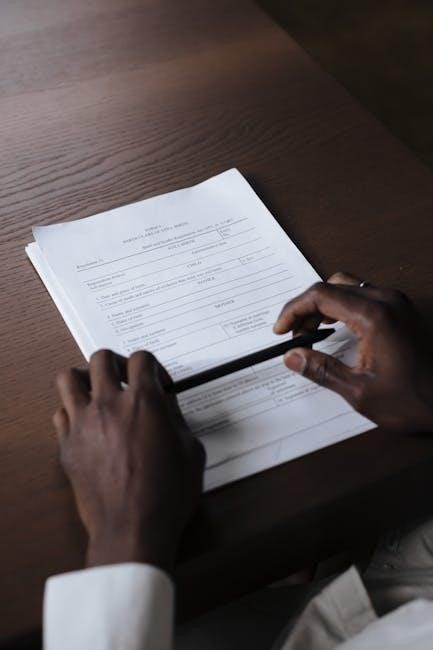
Consequences of Violations
Violating hardship license terms can result in fines, extended license suspension, and mandatory ignition interlock device installation, further complicating the path to full reinstatement.
Penalties for Misuse of Hardship License
Misusing a hardship license in Louisiana can lead to severe penalties, including fines, extended license suspension, and mandatory installation of an ignition interlock device. Additional legal consequences may apply if violations occur while driving under the influence or for other serious offenses. These penalties underscore the importance of adhering strictly to the terms of the hardship license to avoid further complications in regaining full driving privileges.
Legal Ramifications of Non-Compliance
Non-compliance with the terms of a Louisiana hardship license can result in legal consequences, including revocation of the hardship license and extended suspension of driving privileges. Additional penalties may involve fines, potential jail time for repeat offenses, and mandatory reinstatement of an ignition interlock device. The Louisiana OMV may also impose further administrative sanctions, complicating the process of regaining full driving privileges in the future.
Impact on Future Licensing
Misusing a hardship license can significantly impact future licensing. Violations may lead to extended suspension periods, mandatory reinstatement fees, and stricter requirements for regaining full privileges. Repeat offenses could result in permanent revocation of driving rights. Additionally, the Louisiana OMV may impose longer periods before eligibility for license reinstatement, making it more challenging to recover driving privileges. Compliance with all terms is essential to avoid long-term consequences on your ability to legally drive in Louisiana.
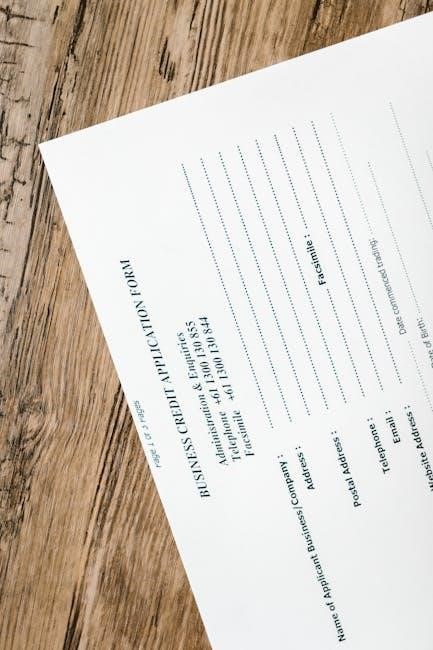
Resources and Further Assistance
For assistance with hardship licenses, contact the Louisiana OMV at (225) 925-6146 or visit their website. Legal consultation is recommended for guidance.
Contact Information for OMV
To inquire about hardship licenses, contact the Louisiana Office of Motor Vehicles (OMV) at (225) 925-6146 or visit their official website. The OMV office is located at 7979 Independence Blvd., Baton Rouge, LA 70806. Applicants can also access online forms and additional resources through the OMV portal. For further assistance, consider consulting legal professionals experienced in Louisiana traffic laws to ensure a smooth application process.
Legal Consultation Recommendations
Consulting a licensed Louisiana attorney specializing in traffic law is highly recommended when applying for a hardship license. Legal experts can guide you through the application process, ensure compliance with state requirements, and address specific legal concerns. Firms like the Russell Law Firm or Attorney Carl Barkemeyer offer tailored advice for hardship license cases. Their expertise can help navigate complexities, such as court-ordered restrictions or reinstatement procedures, ensuring your application is handled effectively.
Online Application and Tools
Louisiana offers online tools to simplify the hardship license application process. Platforms like DocHub and signNow provide editable templates for the hardship license application form, allowing you to fill and submit documents electronically. Additionally, the Louisiana OMV website offers resources to check eligibility and track application status. Online tools streamline the process, saving time and reducing paperwork. Utilizing these digital solutions ensures accuracy and efficiency, helping applicants navigate the requirements seamlessly.
